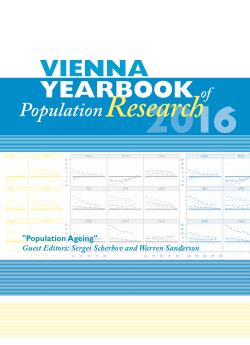
Vienna Yearbook of Population Research 2016, pp. 107-130, 2018/03/12
Special issue on “Population ageing”

To mitigate the effects of population ageing, measures aimed at encouraging people to work longer are being implemented in many countries. However, older people are usually in poorer physical health, and poorer physical health is associated with premature labour force withdrawal. We investigate whether the age-related decline in physical health represents a hurdle to higher labour force participation levels at older ages by proposing a simulation in which the age profile of physical health stays constant over time, while all other factors that predict labour force participation are postponed. The model is fitted using data collected by the Survey of Health, Aging and Retirement in Europe (SHARE) in 14 European countries. The results show that on average across these countries, the effect of health on labour force participation levels is small. This effect is slightly bigger in countries in which labour force participation levels and the share of the population receiving disability benefits are already high. Thus, the decline in physical health with age should not greatly limit the effectiveness of policies designed to encourage employment at older ages.
Keywords: Demography; Aging; Retirement; Health